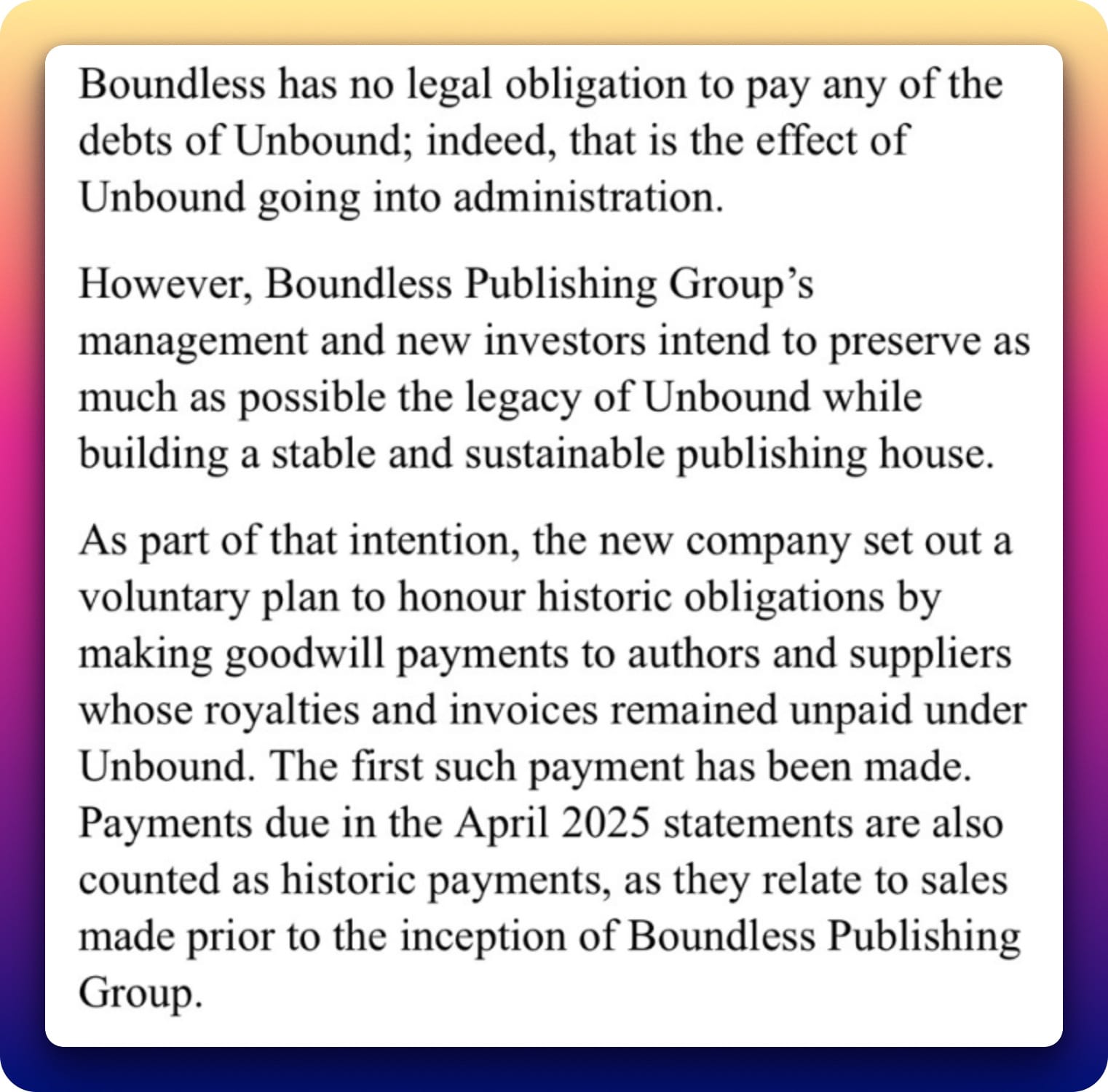The Ultimate Argument for Hybrid Publishing
Why it's best to strongly rethink working with traditional publishers these days.
🌍 PublicFor years, I've been advocating for hybrid publishing. I wouldn't have started Racket—and Motion before that.
Why Go Hybrid?
Count the following among the major benefits of hybrid publishing:
- Far more autonomy over the publishing process.
- The ability to control your book's schedule and its price.
- Ownership of all intellectual property.
- Far higher royalties.
- Greater transparency.
Today's Publishing Landscape
I haven't banged one specific drum all that much: the financial one. In theory, the publisher that fronts you an advance will be solvent when your book releases a year or two from now. As such, you'll receive your royalties if your book earns out (although that's exceedingly difficult to do.)
Historically, this assumption has been reasonable.
As I write these words, it no longer is.
Bankruptcies: The Other Kind of Chapter
The bankruptcies of Unbound and Albert Whitman & Co have sadly demonstrated that authors who work with legacy publishers are rolling the dice.
Unbound folded and became Boundless, but the new legal entity isn't honoring the financial obligations of its predecessor. If you had signed a contract with Unbound, then the following message will infuriate you:

Source: Writer Beware
This legal hair-splitting has justifiably irked Unbound's authors. How could it not?

What You Need to Know
Authors find it frustrating as hell when publishers charge an exorbitant price for their books.[1] Ditto if they delay titles' releases without explanation. Still, Boundless's move is especially unconscionable. Maybe it's legal, maybe not. I'm no lawyer.
I am certain, however, that authors who eschewed Boundless for reputable hybrid presses like Racket feel like they've dodged a bullet precisely because they have.
Pursue a deal with a traditional publisher if you like. Just know in advance you may well face these types of financial shenanigans and all the stress that comes along with it.
Especially since their royalty rates are so low. It's akin to realtors not caring if their clients sell their homes for as much as they can. ↩︎
